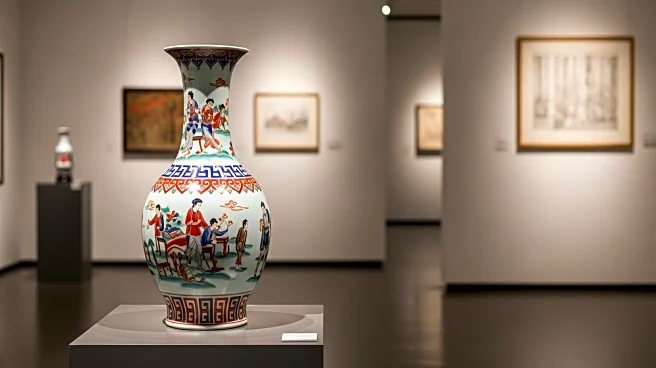What is the story about?
What's Happening?
China is experiencing a transformation in its global image, moving from being known as the world's factory to a creator of cultural content. This shift is marked by the success of Chinese brands and cultural exports such as Pop Mart's Labubu dolls, the video game Black Myth: Wukong, and the animated film Ne Zha 2. According to Chris Pereira, CEO of iMpact, this trend signifies China's growing identity as a creator rather than just a manufacturer. The 2025 Global Soft Power Index ranks China second, highlighting its strong performance in business and trade, and the influence of homegrown brands.
Why It's Important?
The rise of China's cultural exports is significant as it enhances the country's soft power, which is crucial for international reputation and influence. As Chinese brands become globally recognized, they contribute to a positive perception of China, potentially altering geopolitical dynamics. This shift could lead to increased acceptance and integration of Chinese products and culture in global markets, benefiting China's economy and international relations.
What's Next?
China's focus on creativity and cultural exports is likely to continue, with potential for further growth in global influence. The country's strategy may involve welcoming international visitors to experience its culture firsthand, thereby promoting positive narratives about China. However, geopolitical tensions could impact this trend, requiring China to navigate complex international relations carefully.
Beyond the Headlines
The transformation in China's global image could lead to a more pluralistic approach to soft power, emphasizing grassroots and consumer-driven dynamics. This shift may challenge existing narratives about China, offering alternative perspectives in policy debates and fostering a more nuanced understanding of the country.
















